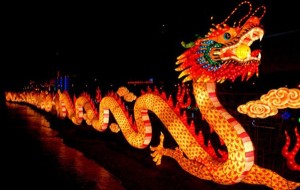The informant is a junior at USC. She is Chinese origin, and was born and raised in America. Kim talks about a special holiday, Chinese New Year, and some of the traditions special to her family and Chinese culture.
Me: “Okay…So tell me about Chinese New Year and then, like what you do, what you and your family do…what your culture does.”
Kim: ”So like Chinese New Year is like the New Year based on the Lunar calendar, not the Greek Orientation I think it’s called. The calendar that we use…is based on the lunar cycle, and then so it usually falls around the end of January, beginning of February, according to our calendar. In China and Taiwan…it’s like a big holiday so the kids have like two weeks off of school and stuff…so it’s very much about like ringing in the New Year, and like being like a new person, and then like just bringing good luck for the New Year. So Traditions are, in the house, we decorate with red, and red is supposed to scare away the demons and bad stuff… back in the day, people believed in that kind of stuff, and it’s also a good luck thing, and that’s why there’s also- I don’t know if you know about like fire crackers, but it’s a really big thing that’s also to scare away- that’s where it came from, but we just do it for like fun and tradition now- to scare away like evil and bad feelings…we also hang, they’re called spring couplets which is like poems, and it’s basically like… a long piece of paper with characters, and it’s basically just a poem that’s about good fortune, good luck and stuff like that… it usually is hung upside down because if you say something is upside down in Chinese… the sound of it is very similar to, “it’s coming.” So like fortune (a chinese character) is coming…We also clean the house…”
Me: “Do you guys have any New Year’s meals?”
Kim:” Yeah, so that’s one of the biggest things, New Year’s Eve meal, New Year’s Eve dinner, so it’s like the biggest meal…all your family comes in from everywhere.”
Me: “Would it be equivalent to our (American) Thanksgiving?”
Kim: “Yeah, definitely. We also eat specific kinds of foods like there’s this thing called a year cake. It’s made out of flour and stuff, I don’t really know.”
Me: “But you have it every year?”
Kim: “Yeah, you’re supposed to…we eat like fish and stuff… there are a lot of food specific to the New Year that are supposed to give you good luck…You’re supposed to eat like long noodles or something because that signifies a long life. I’m not really sure if that’s a New Year’s thing or a birthday thing. I know you do it on your birthday, but I’m not sure about New Years, but I’m pretty sure I’ve had to eat noodles every year. Another thing for me is like this thing called New Year’s Eve TV or something like that…it’s broadcasted in China on New Year’s Eve, and it’s basically this really long-”
Me: “Is It counting down to the New Year?”
Kim: “Kind of, yeah. You know how we have a time square thing? It’s similar, like they have people do like magic tricks and a lot of stuff for like a long time, so I don’t know how long it is. It’s like five hours maybe. So you just sit there and watch it on New Year’s Eve.”
Me: “How is the New Year significant to you? What do the customs mean to you personally?”
Kim: “So, like cause I was born here and grew up here, so I’m not very in tune with my culture, so it helps me to stay in tune…there’s a few holidays throughout the year and this is probably the big one where like I do see all my family and see like the Chinese traditions and stuff like that… Red envelopes is a thing. So like people who are married have to give you money, so once you get married you can’t receive any more (laughs).”
It’s important to note the parallels and similarities found within two different cultures: the American and the Chinese. Just as American’s have an official declared New Year’s Eve Holiday, many Chinese celebrate their own start to a new beginning. The reason of celebration for both cultures seems similar, though the dates ending the years are just a few months apart. Americans broadcast “The ball drop’ in Times Square in New York, and Chinese have a similar broadcasting for which is especially unique to their cultural celebration. One difference between the way that the cultures celebrate is that the Chinese decorate their homes with the color red to mean good fortune, while American society doesn’t seem to place great significance on one, individual color, but rather has officially paired colors with different holidays so that the colors are more of a mere association rather than underlying symbolism.

